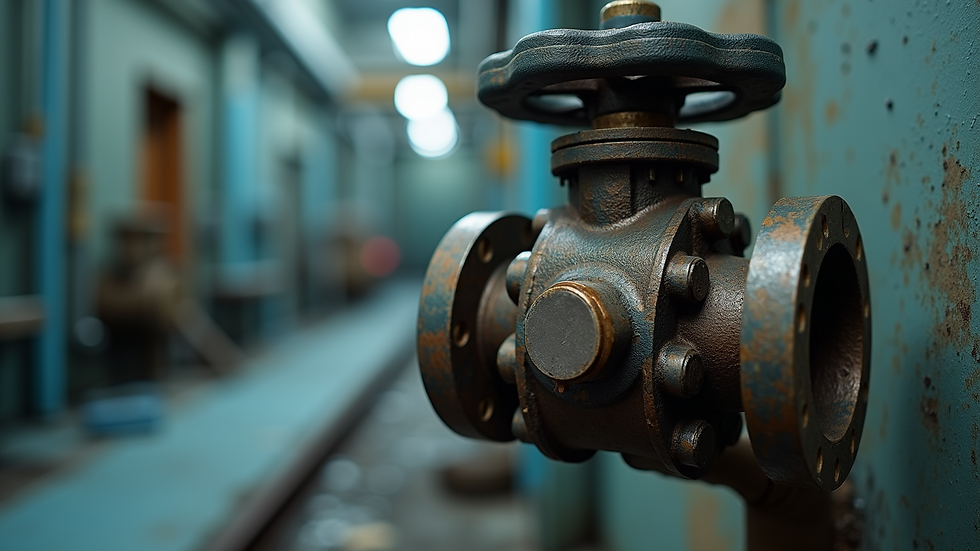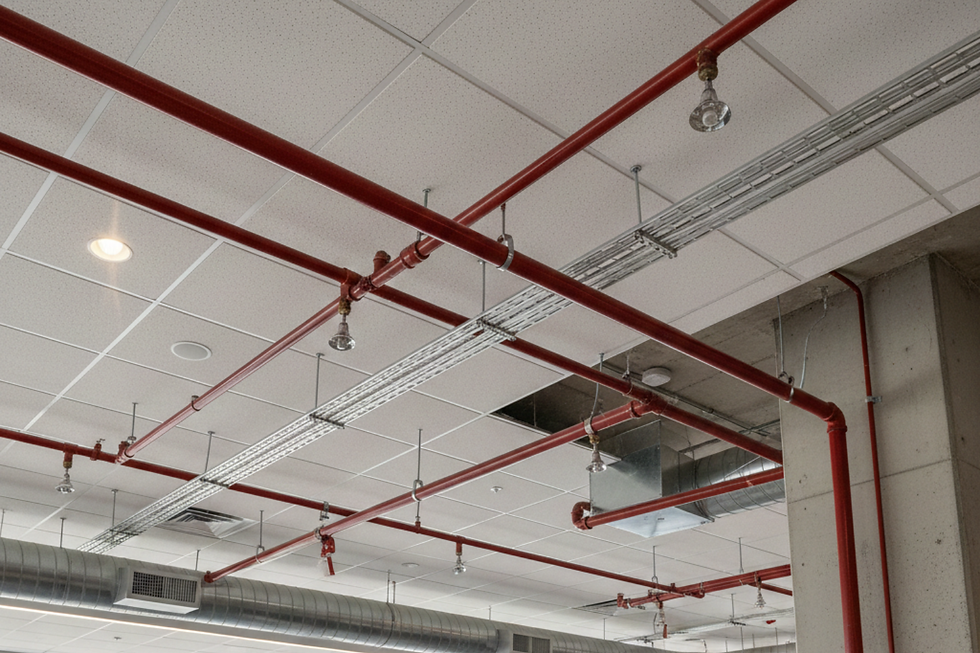The Importance of Backflow Testing in Fire Protection
- firejaime
- May 26, 2025
- 4 min read
Fire protection systems are crucial in ensuring the safety and well-being of any property. One integral part of these systems is the backflow prevention mechanism. Backflow testing plays a vital role in maintaining the integrity and functionality of fire protection systems. This post will explore the importance of backflow testing, the risks associated with neglecting it, and the actions property owners can take to ensure their fire systems remain effective.
Understanding Backflow Testing
Backflow refers to the unwanted reversal of water flow in plumbing systems. This can occur due to several reasons, such as a drop in water pressure or a malfunctioning valve. In fire protection systems, backflow can lead to contamination of the potable water supply, which poses significant health risks. Backflow testing helps to detect and prevent such occurrences by ensuring that backflow prevention devices are working effectively.

According to the Environmental Protection Agency (EPA), backflow can introduce harmful contaminants into drinking water systems. Regular backflow testing is not just a recommendation; it is often mandated by local regulations to protect public health. This testing verifies that backflow preventers are functioning correctly, helping to maintain a safe and clean water supply.
The Risks of Neglecting Backflow Testing
Neglecting backflow testing can have dire consequences. A malfunctioning backflow prevention device can allow hazardous materials, such as chemicals from fire suppression agents, to mix with the drinking water supply. These contaminants can endanger the lives of residents and visitors.
Furthermore, businesses may face legal liabilities if contamination occurs due to negligence in backflow prevention. This could result in costly fines or lawsuits for property owners. In some cases, entire buildings may be shut down until contamination issues are resolved, leading to lost revenue and damaging a business's reputation.
In addition, property insurance may not cover contamination issues caused by poorly maintained backflow systems. Regular backflow testing can help mitigate such risks and ensure compliance with local laws.

Statistics show that approximately 15% of fire protection systems fail during inspections due to improper backflow prevention measures. This highlights the importance of conducting regular and thorough backflow testing. When performed by qualified professionals, testing identifies issues before they become serious problems, ensuring the fire protection system remains reliable.
The Backflow Testing Process
Backflow testing is typically conducted by licensed professionals experienced in fire protection systems. The testing process generally involves the following steps:
Inspection of Equipment: The technician will first inspect the backflow prevention assembly and other connected components to ensure they are in good condition.
Testing for Backflow: The technician will then perform a series of tests to check the functionality of the backflow prevention device. This typically includes monitoring the pressure and flow rate to ensure water doesn't flow back into the potable supply.
Documentation: After the test, the technician will document the results. This documentation is vital for compliance with local regulations and can help address any future legal concerns.
Recommendations for Maintenance: If any issues are found during testing, the technician may recommend repairs or maintenance. Following through on these recommendations is essential to keep the fire protection system operational.

Property owners should schedule backflow testing at least once a year, or more frequently if involved in heavy use or presence of contaminants. Following local regulations may require more frequent testing, particularly in commercial settings.
Why Choose Professional Backflow Testing Services
While some property owners may consider conducting backflow testing themselves, it is highly advisable to engage professionals. Certified technicians are trained to handle the complexities of fire protection systems and backflow prevention. They have the tools and knowledge required to perform accurate tests, detect subtle issues, and provide solutions.
Engaging professional backflow testing services also ensures compliance with local regulations, significantly reducing legal risks. Furthermore, routine inspections by trained professionals can bolster the reliability of fire protection systems by identifying issues early on.
By investing in professional services, property owners not only safeguard their tenants and visitors but also their investments. Regular maintenance, including backflow testing, can prolong the life of fire protection systems, minimizing the need for costly replacements in the future.
Taking Action for Fire Safety
The importance of backflow testing in fire protection cannot be overstated. It is essential for protecting the health of all property users and ensuring compliance with regulations. As a property owner, taking proactive steps can prevent contamination and maintain efficient fire protection.
Schedule Regular Testing: Make it a priority to schedule annual backflow tests, or as recommended by local authorities, to ensure your system remains compliant and functional.
Engage Qualified Professionals: Choose licensed technicians for backflow testing. Ensure they have a solid reputation and ample experience in fire protection systems.
Document Results: Keep records of all testing and maintenance activities. This documentation can prove invaluable in case of any disputes or regulatory checks.
Stay Informed: Regularly review local laws and guidelines regarding backflow prevention and fire protection. This awareness will help ensure that you are always compliant.
By prioritizing backflow testing and maintenance, you can create a safer environment for everyone who enters your property. The investment in fire protection systems is an investment in peace of mind.

In summary, backflow testing is a critical aspect of any fire protection system. It ensures not only the safety of the water supply but also the reliability of the fire response systems. Regular testing can prevent severe consequences, both from a health and legal standpoint.
Now is the time to take action—prioritize your fire safety systems, and don't hesitate to invest in professional backflow testing services to keep your property and everyone in it safe.




Comments